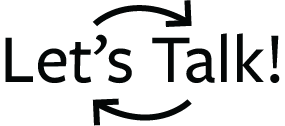Social Emotional Learning (SEL)
Meet the Staff
District Support Specialists
Kylie Densmore(517) 755-4033Kylie.Densmore@lansingschools.net |
Kristy McCarthy(517) 755-4032kristy.mccarthy@lansingschools.net |
Leslie Wertz(517) 755-4035Leslie.Wertz@lansingschools.net |
Social Emotional Learning (SEL)
Social and Emotional Learning (SEL) is an integral part of education and human development. SEL is the process through which all young people and adults acquire and apply the knowledge, skills, and attitudes to develop healthy identities, manage emotions, and achieve personal and collective relationships, and make responsible and caring decisions.
SEL advances educational equity and excellence through authentic school-family-community partnerships to establish learning environments and experiences that feature trusting and collaborative relationships, rigorous and meaningful curriculum and instruction, and ongoing evaluation. SEL can address various forms of inequity and empower young people and adults to co-create thriving schools and contribute to safe, healthy, and just communities.
Source: ![]() CASEL.org
CASEL.org
The Lansing School District is committed to teaching and reinforcing SEL concepts to help students experience academic success. In the coming months, teachers will be offered professional development opportunities on integrating SEL into core curriculum...
Integrating SEL with instructional practices and academic content has become a priority for improving problem solving, elevating student voice, promote academic mindsets, and improving social engagement and communication.
To learn more about integrating SEL into curriculum, refer to the resources below:
![]() Connecting Social and Emotional Learning to Michigan's School Improvement Framework
Connecting Social and Emotional Learning to Michigan's School Improvement Framework
![]() MDE Early Childhood - Grade 12 SEL Competencies & Indicators
MDE Early Childhood - Grade 12 SEL Competencies & Indicators
![]() SEL Trends: Integrating with Academics
SEL Trends: Integrating with Academics
![]() Morning Meetings: Building Community Classrooms
Morning Meetings: Building Community Classrooms
![]() Integrating SEL and the Common Core State Standards for Mathematics
Integrating SEL and the Common Core State Standards for Mathematics
SEL Resources
Top 10 Books for Parents
 Positive Discipline by Jane Nelsen, Ed.D
Positive Discipline by Jane Nelsen, Ed.D
In this easy-to-read guide, Jane Nelsen coaches parents and teachers to be firm and kind so that any child from toddler to teenager can learn creative cooperation and self-discipline with no loss of dignity.
 Positive Discipline for Preschoolers: For their Early Years – Raising Children Who are Responsible, Respectful, and Resourceful by Jane Nelsen, Cheryl Erwin, and Roslyn Duffy
Positive Discipline for Preschoolers: For their Early Years – Raising Children Who are Responsible, Respectful, and Resourceful by Jane Nelsen, Cheryl Erwin, and Roslyn Duffy
Written as a quick reference guide, this book will teach you methods for raising a preschool-age child who is responsible, respectful, and resourceful by finding practical solutions to parenting challenges such as bedtime hassles, school problems, whining, and much more.
 Making Grateful Kids: A Scientific Approach to Help Youth Thrive by Jeffrey Froh, Giacomo Bono
Making Grateful Kids: A Scientific Approach to Help Youth Thrive by Jeffrey Froh, Giacomo Bono
The authors introduce their most compelling research, announce groundbreaking findings, and share real-life stories to show parents, teachers, mentors, and kids how to achieve greater life satisfaction through gratitude. They offer many simple strategies for building habits of gratitude into day-to-day life and provide compelling evidence for its importance.
 Managing Transitions: Making Sense of Life’s Changes by William Bridges
Managing Transitions: Making Sense of Life’s Changes by William Bridges
The author spent his life working to understand changes. Whether you are going through the birth of a new baby, a move, a job change, or the death of a loved one, this book explains in simple terms how any person can understand the emotions they are undergoing, help ease the transition, and launch a new life.
 Yardsticks: Children in the Classroom Ages 4-14 by Chip Wood
Yardsticks: Children in the Classroom Ages 4-14 by Chip Wood
This comprehensive, user-friendly reference helps those who work with and love children use the knowledge of child development to shape classrooms and schools where all children can succeed by giving charts on development traits; physical, social, language, and cognitive growth patterns; and suggestions for curricular areas. Though the text is geared for educators, this is a good resource for parents who want to understand each age and stage of development.
 Brainstorm: The Power and Purpose of the Teenage Brain: An Inside-Out Guide to the Emerging Adolescent Mind, Ages 12-24 by Daniel J. Siegel
Brainstorm: The Power and Purpose of the Teenage Brain: An Inside-Out Guide to the Emerging Adolescent Mind, Ages 12-24 by Daniel J. Siegel
Written by a leading expert in brain science, this book sheds light on the often misunderstood yet critical time in children’s lives when they straddle childhood and adulthood but don’t fit squarely in either phase. Siegel characterizes the teen years as the most powerful life phase for activating courage, purpose, and creativity. He creates empathy for the teenage experience and helps parents understand how to work with and support their teenagers.
 Parenting without Power Struggles: Raising Joyful, Resilient Kids While Staying Cool, Calm, and Connected by Susan Stiffelman
Parenting without Power Struggles: Raising Joyful, Resilient Kids While Staying Cool, Calm, and Connected by Susan Stiffelman
The author shows you how to awake your child’s natural instincts to cooperate by being the confident parent your child needs, teaching you how to parent from a place of strong, durable connection, and helping your child navigate the challenging moments of growing up. This is an excellent resource for any parent but particularly for those who find themselves in power struggles with their children.
 The Whole-Brain Child: 12 Revolutionary Strategies to Nurture Your Child’s Developing Mind by Daniel J. Siegel
The Whole-Brain Child: 12 Revolutionary Strategies to Nurture Your Child’s Developing Mind by Daniel J. Siegel
This book simplifies brain science to assist parents in teaching children about how their mind works and how they can practice emotional awareness and self-management.
 Smart Parents: Parenting for Powerful Learning by Bonnie Lathram, Carri Schneider, and Tom Vander Ark
Smart Parents: Parenting for Powerful Learning by Bonnie Lathram, Carri Schneider, and Tom Vander Ark
Packed with helpful guidance from more than 60 parents who are also experts in learning and/or education, this book prepares parents for powerful and significant contributions to children’s learning with practical tips.
 How to Talk So Kids Will Listen and Listen So Kids Will Talk by Adele Faber and Elaine Mazlish
How to Talk So Kids Will Listen and Listen So Kids Will Talk by Adele Faber and Elaine Mazlish
This book provides specific language and numerous examples of parent interactions to enhance parents’ communication and listening skills in a variety of challenging situations. It has the potential to create deeper connections and trust as parents use the skills with their children.
Source: CASEL.org/in-the-home-3/books/


